Per Petterson Quotes & Sayings (Page 2)
Per Petterson quotes and sayings page 2 (novelist). Here's quote # 11 through 20 out of the 31 we have.
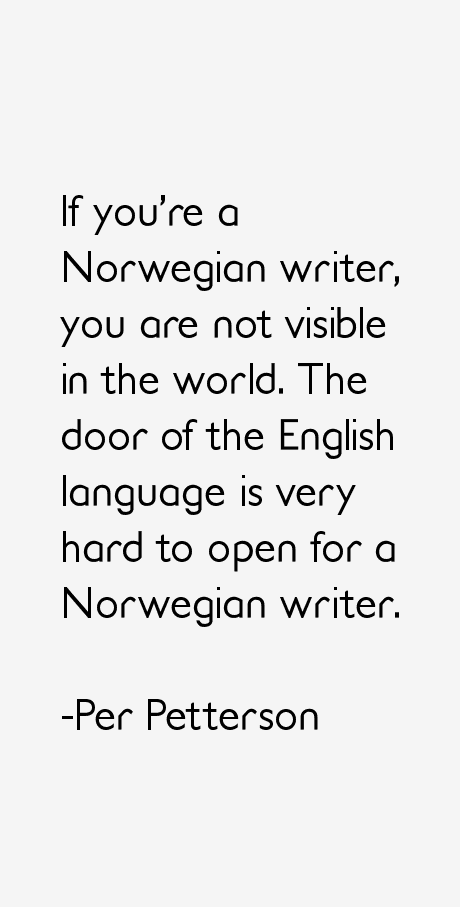
“If you're a Norwegian writer, you are not visible in the world. The door of the English language is very hard to open for a Norwegian writer.”
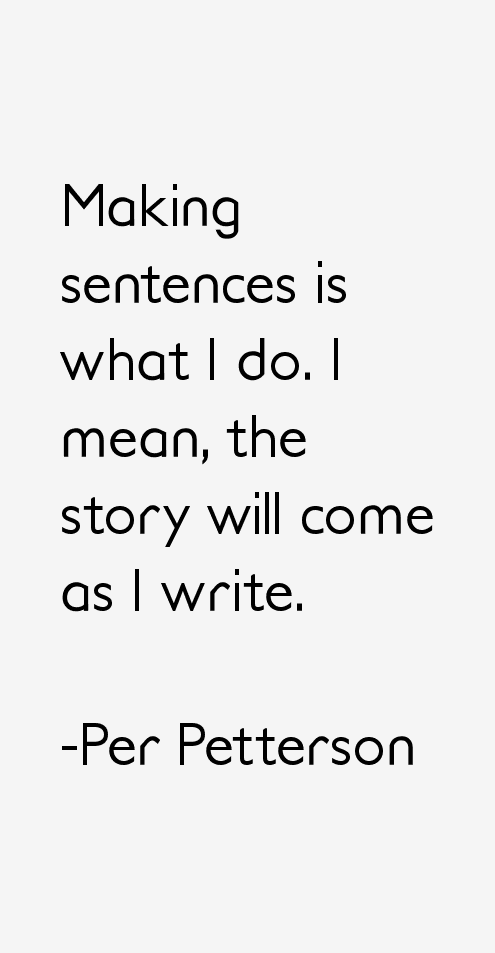
“Making sentences is what I do. I mean, the story will come as I write.”
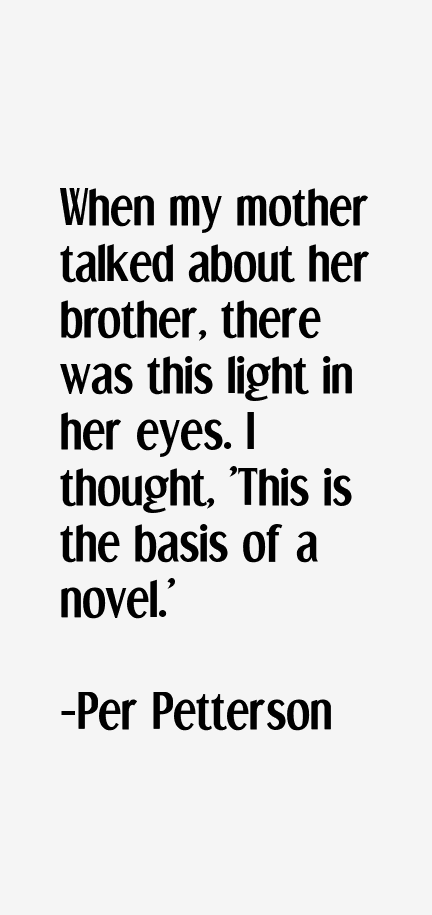
“When my mother talked about her brother, there was this light in her eyes. I thought, 'This is the basis of a novel.'”
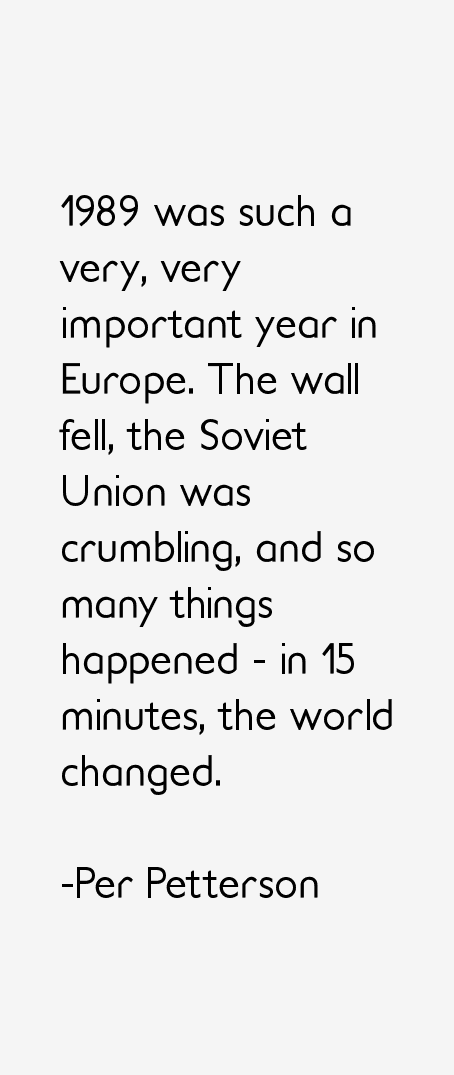
“1989 was such a very, very important year in Europe. The wall fell, the Soviet Union was crumbling, and so many things happened - in 15 minutes, the world changed.”
“I admire American literature, both contemporary and classic - 'Moby-Dick' is just about the best book in the world - and I admire British literature for its insistence on dealing with social class. It may have been an influence.”
“I come from a working-class family. They're the people I know and the people I love, I guess. I do not write about them for political reasons, but because, as I see it, most interesting things - social, political, emotional - take place there. It's a bottomless well for an author like me.”
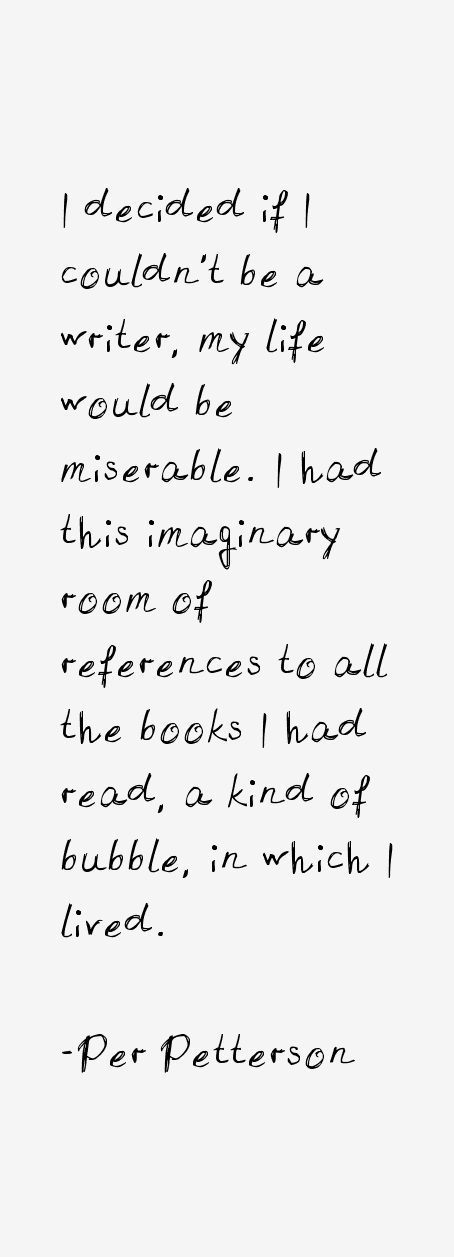
“I decided if I couldn't be a writer, my life would be miserable. I had this imaginary room of references to all the books I had read, a kind of bubble, in which I lived.”

“I do consider myself a Norwegian writer, or a Scandinavian writer, as my family tree reaches into both Denmark and Sweden. I don't think about it, of course, when I am writing.”
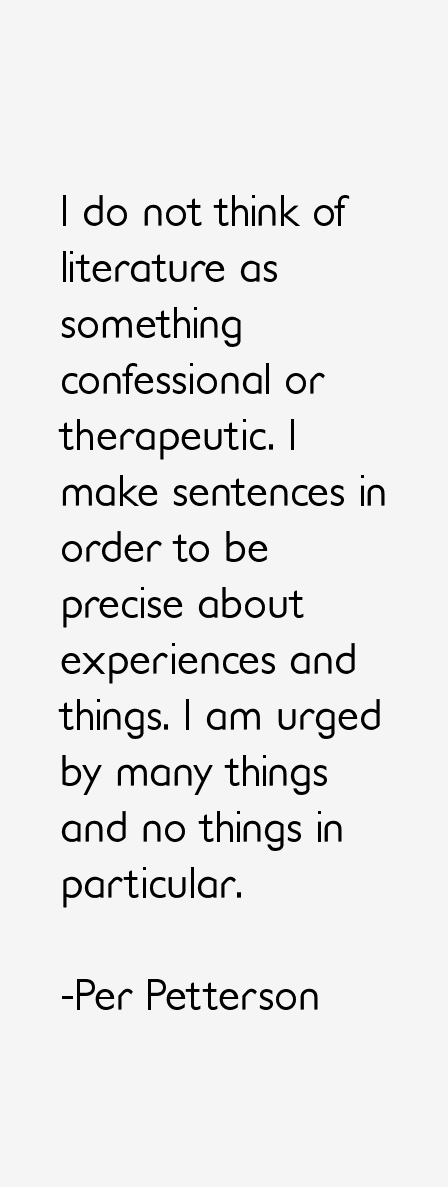
“I do not think of literature as something confessional or therapeutic. I make sentences in order to be precise about experiences and things. I am urged by many things and no things in particular.”
“I don't know if nature is a direct literary influence on my writing, but it is certainly important to me. I take great joy in writing about it. It is something I have taken with me from my childhood; the body exposed to the threat of the physical world and at the same time being at home in it.”
Per Petterson Quotes Rating
No Ratings Yet
Leave A Comment
























